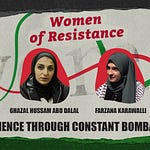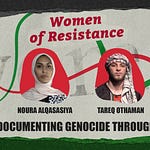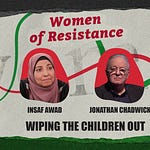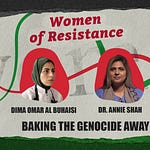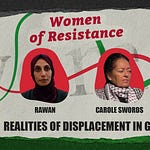Seventeen-year-old Farha Kamal Abu Ghaban is no ordinary teenager. Her story, broadcast on the latest episode of Women of Resistance, unfolds not against the backdrop of school halls and youthful dreams, but amid the crumbling ruins of Gaza — a place where bombs fall more often than rain.
In an emotionally charged conversation conducted across borders and bombs, Farha joins the program remotely, speaking from the fourth location her family has been forced to flee to. Her story is a harrowing glimpse into the lived experience of Palestinians who endure the long shadow of Israeli military aggression — not in statistics or headlines, but in human breath, loss, and courage.
“A year ago, I was living with my mother and sisters, planning for university. Today, I don’t know if there will be a tomorrow.”
Farha recounts how an Israeli strike destroyed her home, injuring her mother and younger sister. She describes nights of terror under the roar of drones, and days spent tending to her wounded family in makeshift shelters. Her voice, though trembling at times, remains composed — a quiet defiance to the chaos outside her door.
Joining in studio is Dr Sukaina Hirji, a UK-based academic and healthcare advocate. Dr Hirji contextualises Farha's account within the broader humanitarian collapse in Gaza, explaining how medical facilities are being targeted or overwhelmed.
“Gaza’s healthcare system is not merely failing — it is being dismantled,” she warns. “Doctors operate without anaesthesia. Children die of treatable wounds. And yet the world watches.”
Sakina Datoo, host and seasoned presenter, steers the conversation with both grace and urgency, pressing for clarity on the intersection between trauma, resistance, and survival. Through her guidance, the episode never drifts into voyeurism or despair. Instead, it remains anchored in the dignity of those resisting — not only through protest, but through the sheer act of living.
Farha's words linger long after the episode ends. She doesn’t ask for pity — only for recognition.
“We want to live. To learn. To be heard.”




